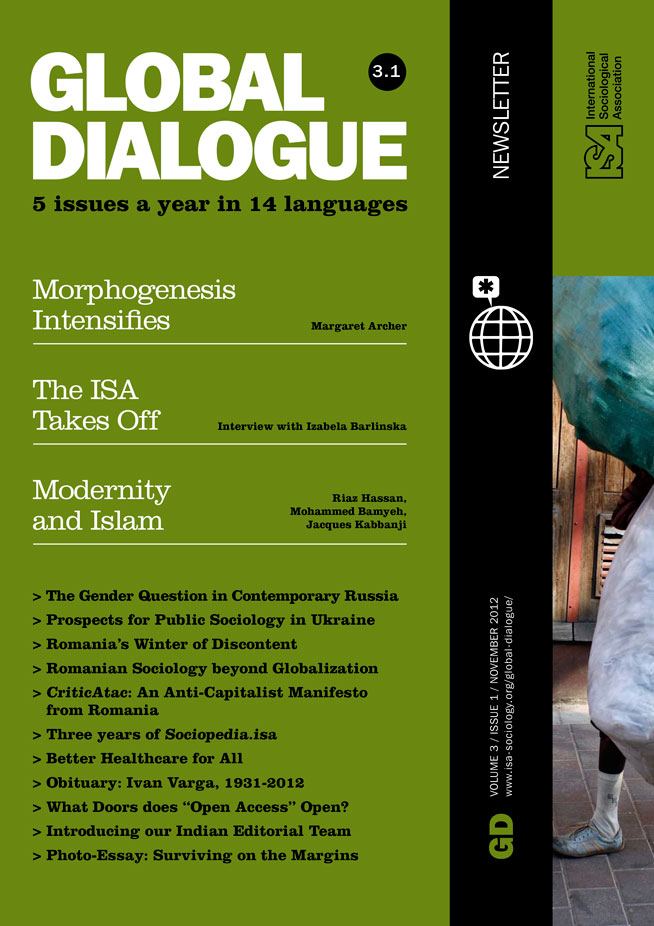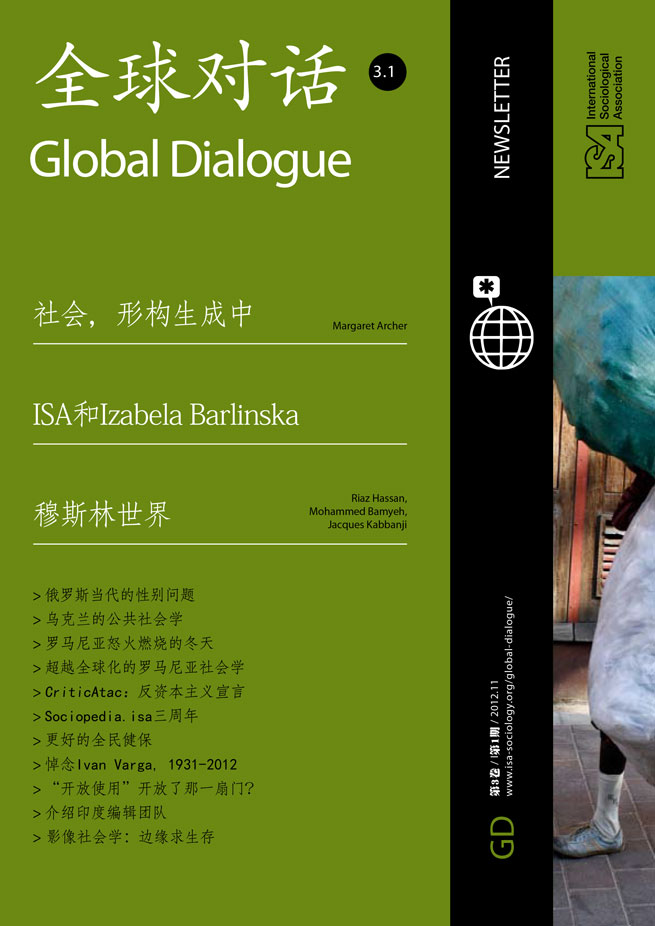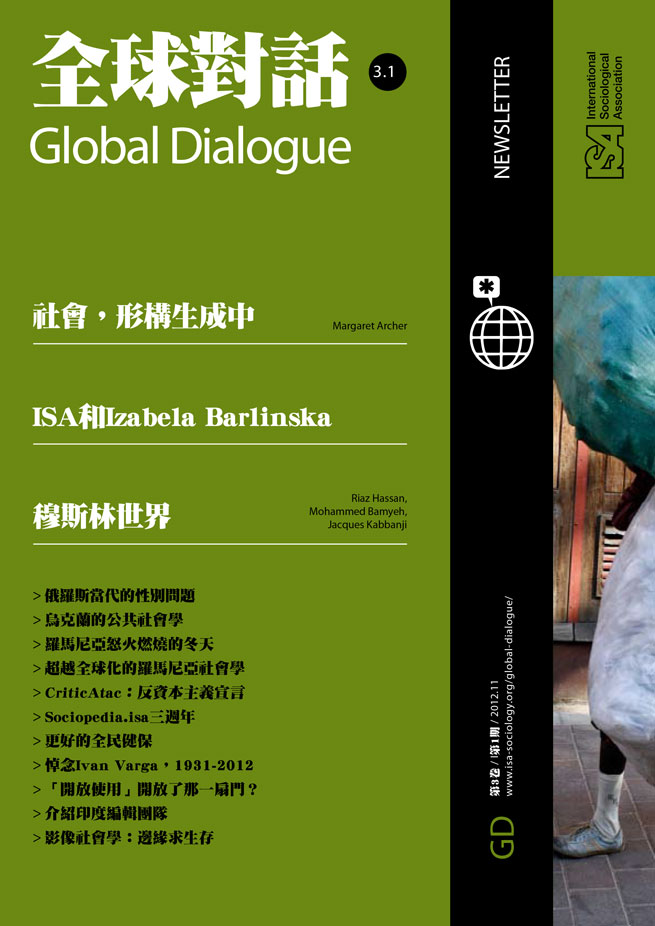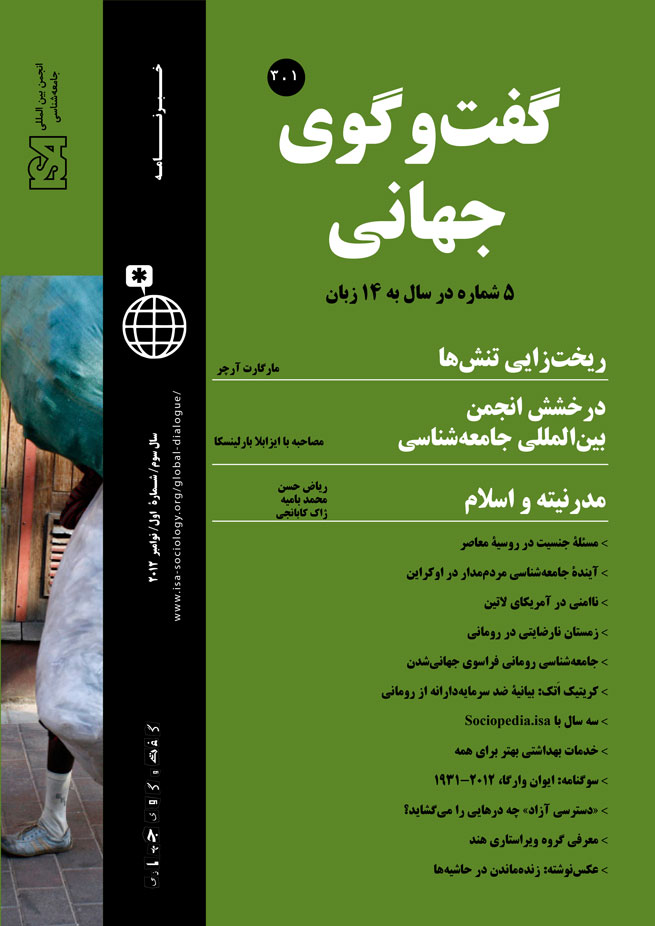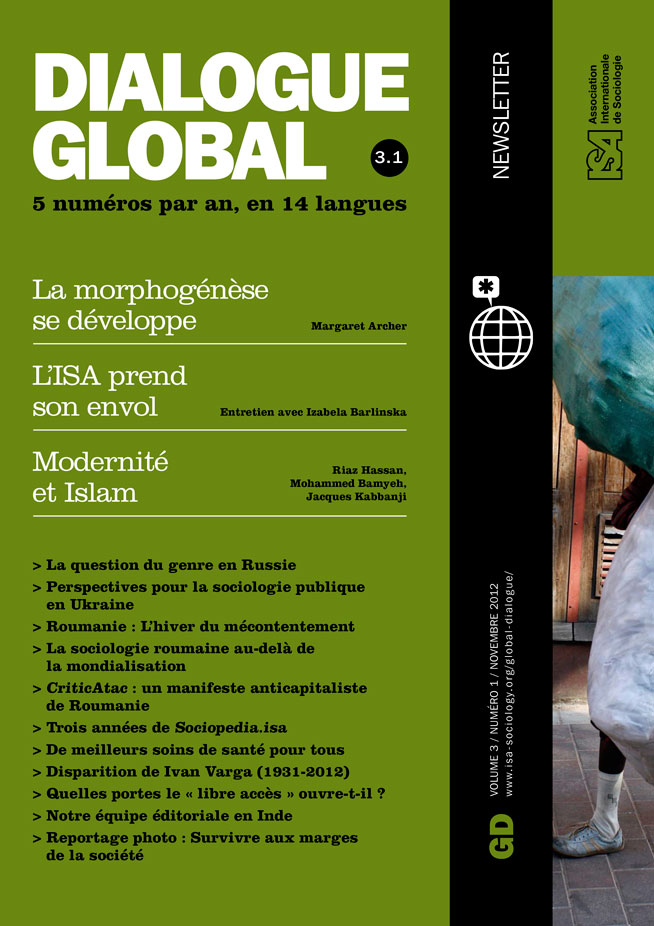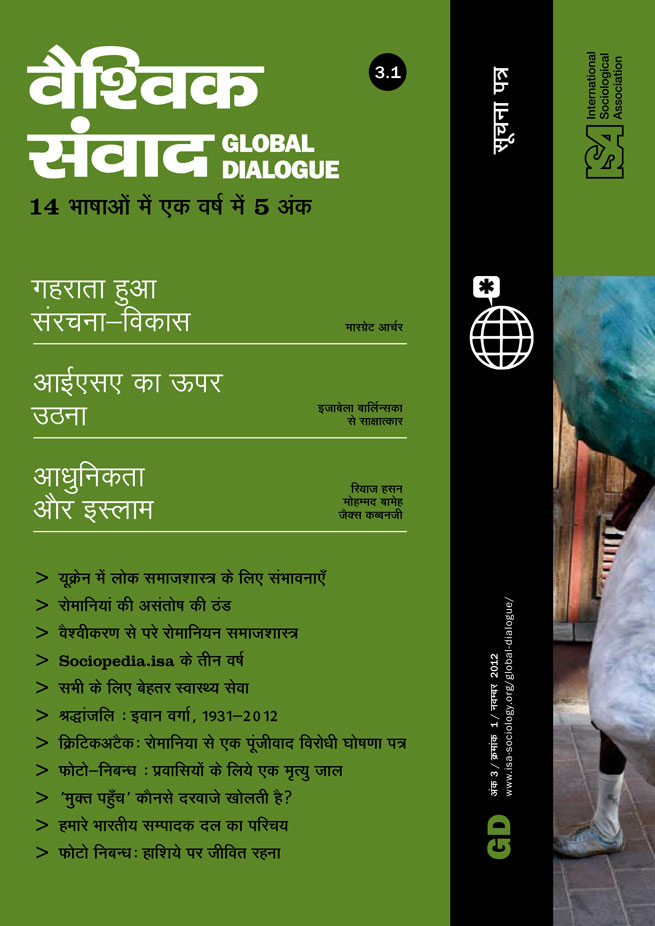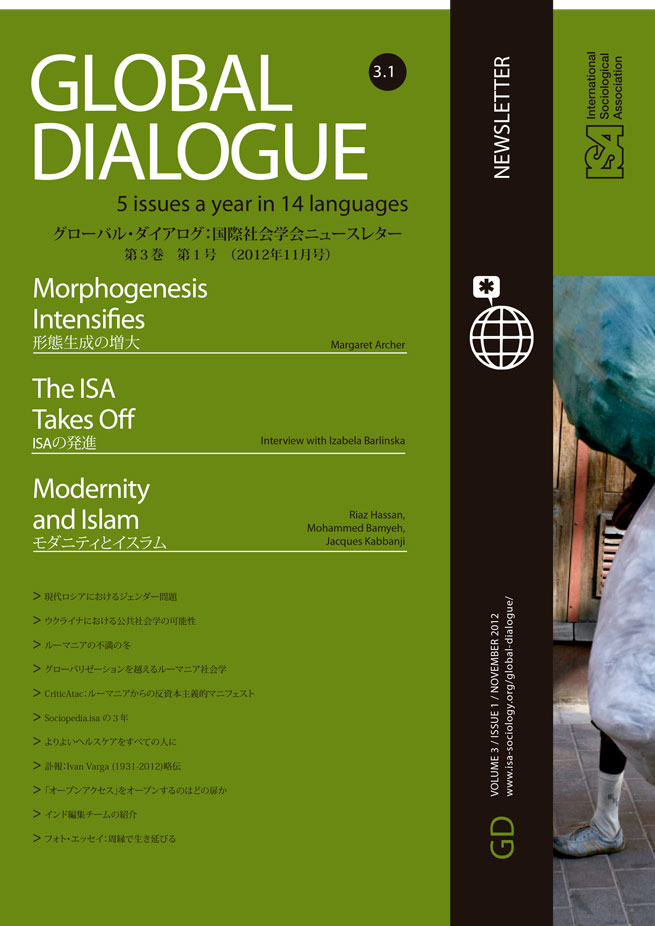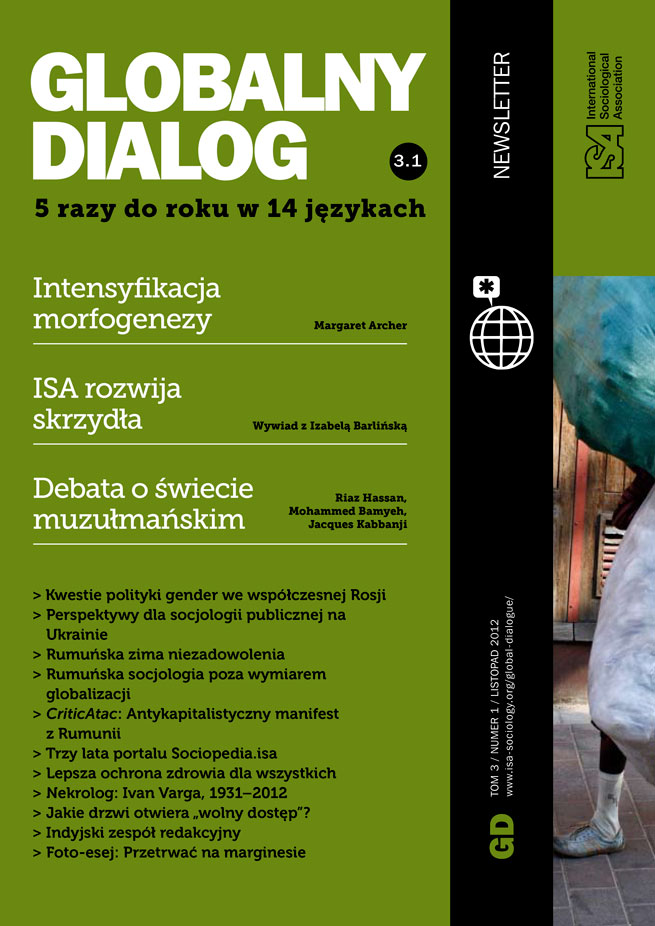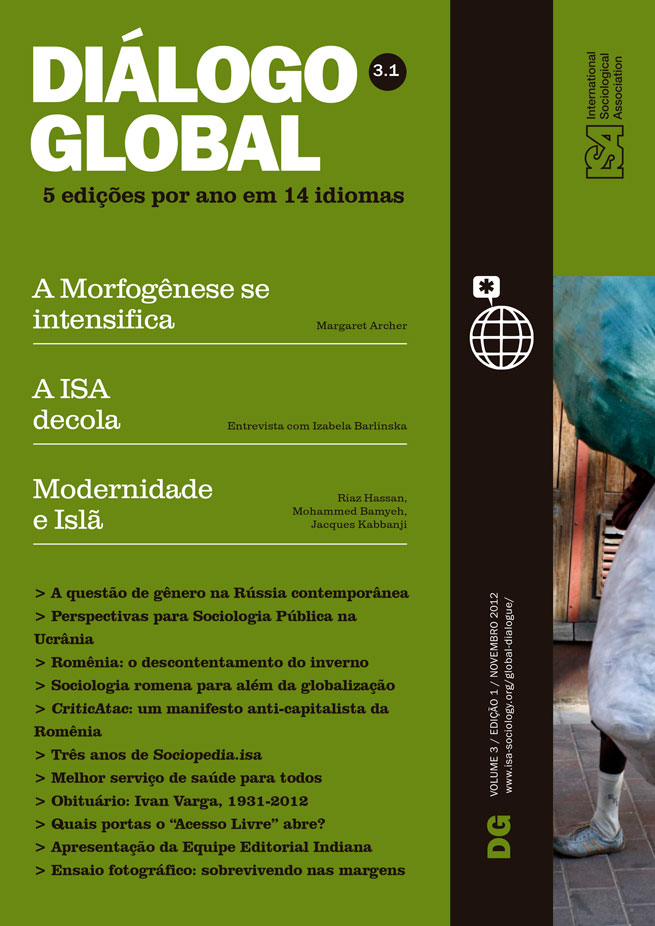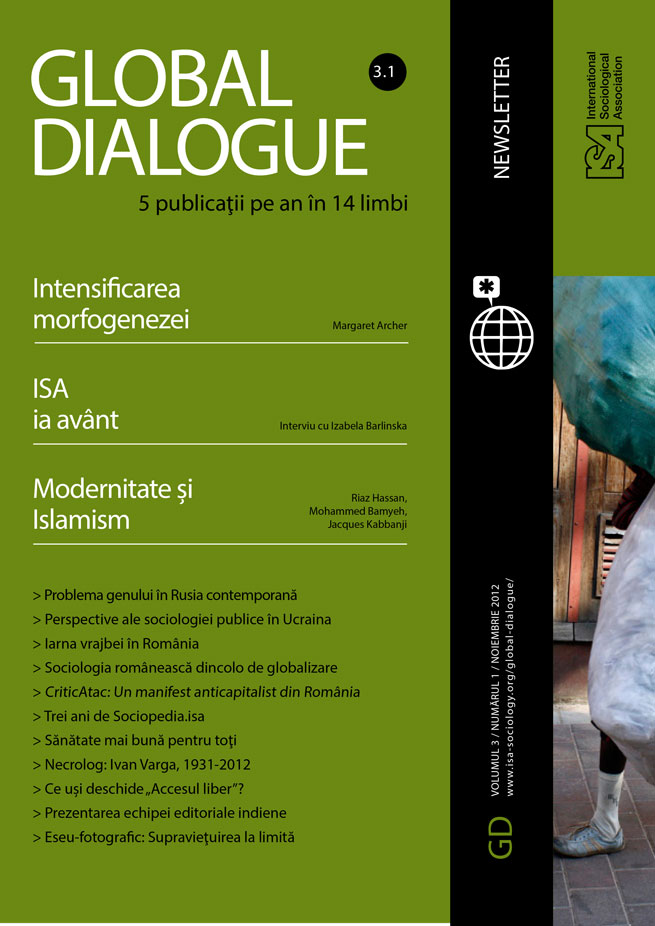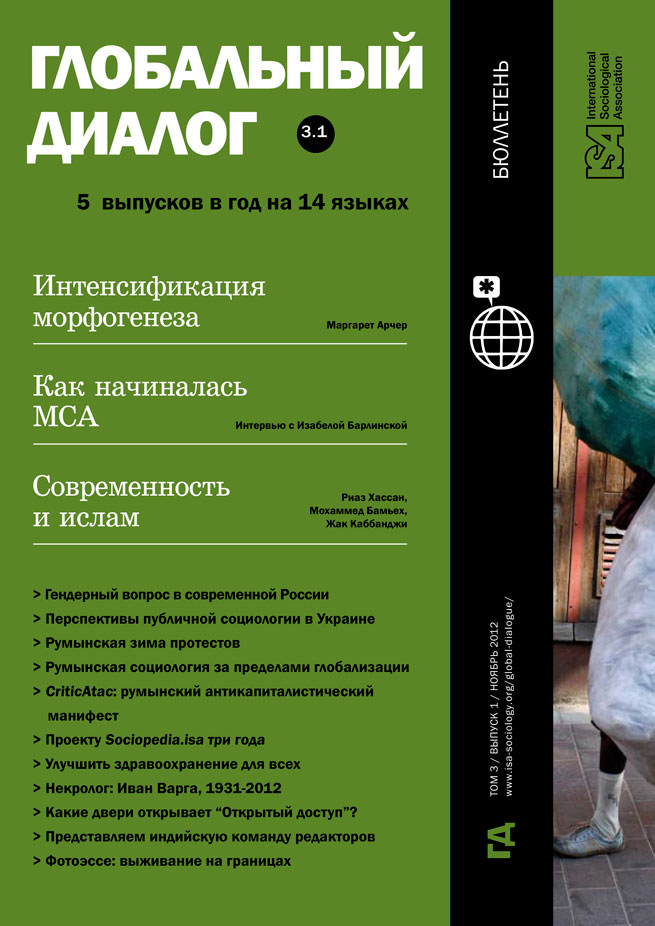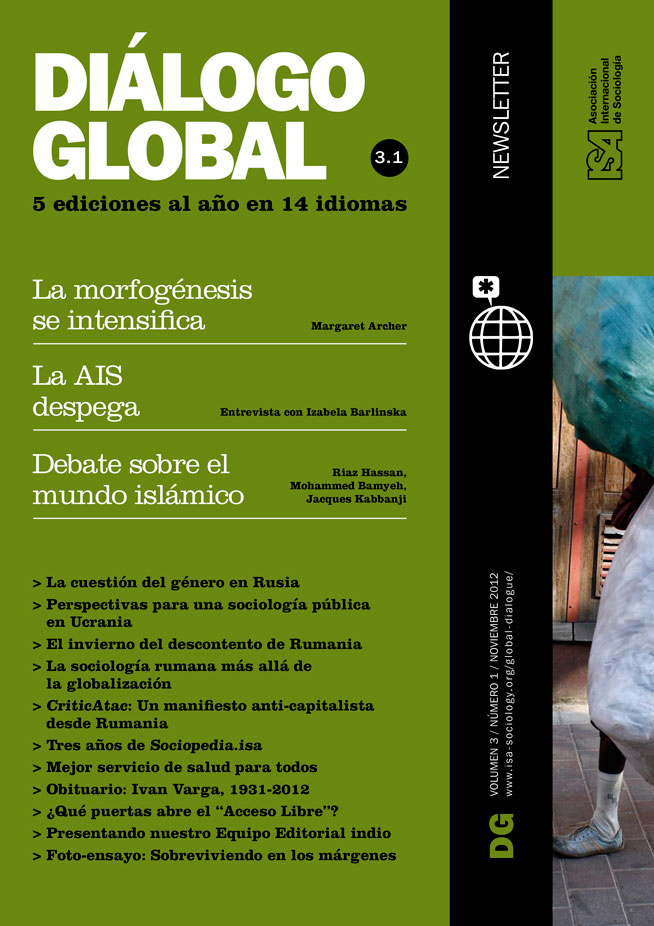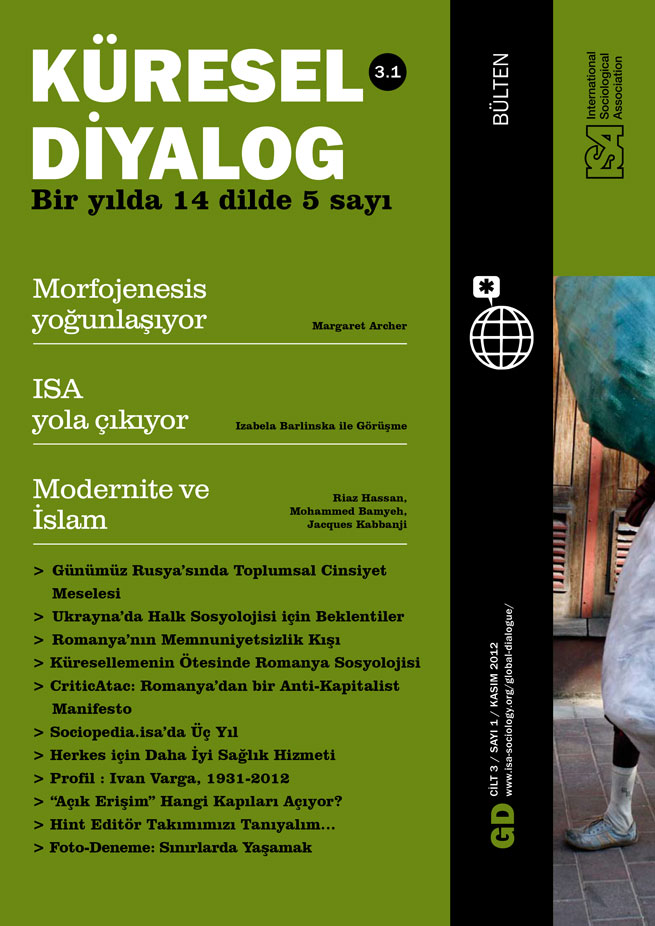On the Vocation of Sociology as Morphogenesis Intensifies

October 28, 2012
Margaret Archer was the first and only woman President of the ISA, 1986-1990. She has pioneered the study of social change as a process of “morphogenesis” by which she means the serial interaction of social structure and social agents – interaction made possible by cultural understandings. It all began with her studies of the French and English educational systems, showing how they structure responses which in turn reshape those systems. She is the author of many books that elaborate her “realist” social theory, and she has followers the world over. For many years she taught at Warwick University and now directs the Center of Social Ontology at the École Polytechnique Fédérale de Lausanne.
Sociology was born seeking answers to four questions: “Where have we come from?,” “What is it like now?,” “Where are we going?,” and “What is to be done?” These are all realist questions: there is a real social world with real properties inhabited by real people who collectively made the past and whose causal powers are already shaping the future. One way in which Weber expressed the vocation of sociology was to discover why things are “so” and not “otherwise.” Those who have made this commitment could never accept Baudrillard’s conclusion: “All that remains to be done is to play with the pieces.” Ibn Khaldun might have called that the hallmark of a decadent civilization.
What is more damaging than postmodernist “playfulness” is actually breaking up the pieces. All social life – micro-, meso- and macroscopic – necessarily comes in a SAC; the relations between “structure,” “agency,” and “culture” are always indispensable to explaining anything social.
Without being fussy about definitions, leave out “structure” and the contexts people face become kaleidoscopically contingent; omit culture and no one has a repertoire of ideas for construing the situations that they confront; without agency we lose activity-dependence as the efficient cause of there being a social order. The vocation of sociology is to account for their interplay and resulting configurations. By breaking up the pieces and then pulverizing them, too many social theorists have renounced their vocations and become morticians, writing out death certificates for each component of SAC. Yet, with these “deaths” every part of the world is deprived of its toolkit for explaining why things are so and how they could be otherwise.
Where “structures” are concerned, current “de-structuration” theories replace them with flows. The metaphor of liquidity points to the ultimate uncontrollability of the social. This was heralded by the “runaway,” “juggernaut,” and “risk” societies, but the flood has gained momentum and is floating out into the sea of self-organized phenomena charted by complexity theory. However, unfitness for purpose is glaring in the face of the current economic crisis. This crisis has revealed part of a structure previously occluded. We know more now about the structuring of global finance capital and its intertwining with the multinationals and national governments than ever before 2008. All that is solid has not melted into air, but derivatives, sub-prime mortgages, foreign exchange dealing and debt trading take more understanding than Fordism.
Because the structured positions, relations, and interests are indeed complicated, the media have trivialized and personalized the crisis in terms of bankers’ bonuses and helping some greedy heads to roll. The “Occupy movements” testify to the missing sociological toolkit. Are they opposing austerity measures or global finance capitalism? Whilst London seemed unsure, the Geneva movement holds regular seminars in which to come to grips with the intricacies involved. Associations of heterodox economists have generally been of more assistance than sociologists. Where is our equivalent to Stefano Zamagni’s analysis of the damaging contributions made by the last ten Nobel Prize winners in economics? What has our contribution been to envisaging a civil economy?
This leads to “culture” and the huge role that TINA (“there is no alternative”) has played in the attempt to return to “business as usual.” The “cultural turn” privileged discourse, but the crisis cannot be reduced to the discursive. The hegemony of discourse displaced the concept of ideology, consigning it to the trash can of “zombie” class warfare. With it, the crucial nexus between ideas and interests was lost as the site of legitimation politics. Lost too were ideational sources of critique, not merely as expressive activities (there is plenty on them), but as resources in social mobilization (whose absence empowers TINA). Ironically, as the flows turn into floods, there is a perverse clinging to habit, dispositional habitus and routine action in sociology, despite their incongruity with rapid change. Yet, as the great American pragmatists were the first to stress it, problem situations are the midwives of reflexive innovation.
Finally, and most serious is the death of the subject, erased as Foucault put it more than 40 years ago, “like a face drawn in sand at the edge of the sea.” Since then our human erasure has been repeated by many board-cleaners: persons becoming open slates for self-inscription (Gergen), serially re-invented selves (Beck), and ultimately, demotion to the agential “actant.” With the death of the subject, intentionality, reflexivity, caring, and commitment also make their exit, together with the uniquely human capacity to envisage how the social could be “otherwise.”
Those defending our human liabilities and potentialities have been quite rare; hence Andrew Sayer’s need to write his excellent book on Why Things Matter to People. Sociology retains a humanistic strand but its approach to the humane is rather stifled. Thus, loneliness and isolation are not popular themes compared with marginalization and exclusion, but they are just as much scourges of the developed world and among its exports. Sociologists are also more forceful in accentuating our susceptibility to suffering than to flourishing. We have been too timid about advancing a “Sociology of Thriving,” largely limiting ourselves to indisputable biological needs. Why is there no sociology of joy, little mention of exultation or rich contentment and why is happiness left to the metrics of economists? Answering these questions is a predicate of sociology contributing to the definition of a flourishing civil society.
Today, the leading trope is “liquid modernity,” but metaphors explain nothing and often mislead (remember the mechanical, organic and cybernetic similes). Particular theories of change have accentuated one element of SAC alone: “culture” for “Information Society;” “structure” for “Globalized Capitalism” or “Empire;” and “agency” for the “institutionalized individualism” of “Reflexive Modernization.” Each seizes upon one (empirically striking) component, considers it to be the leading part and wrongly equates it with the generative mechanism of change. Instead, we need to examine the SAC synergies and positive feedbacks making social morphogenesis the process responsible for intensifying change – in a non-metaphorical manner.
Margaret Archer, École Polytechnique Fédérale de Lausanne, Switzerland, and former ISA President, 1986-1990


